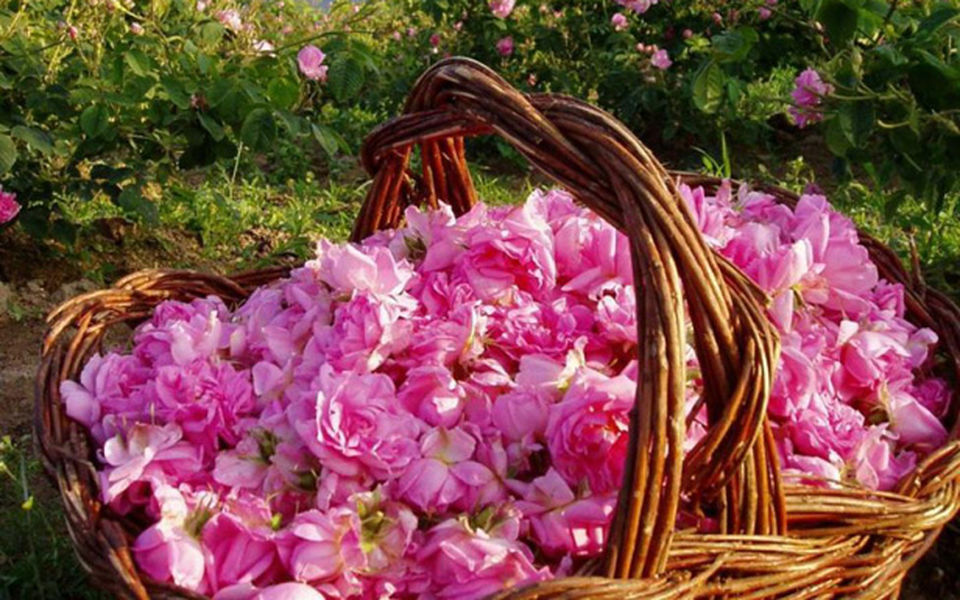Rose essential oil research
Production of Rose essential oil and absolute
The two main producers of this precious ingredient are Turkey and Bulgaria. First producers of this flower were found in Northern Persia (modern Iran).
By the middle of the 18th century, Bulgaria had already become a center for rose cultivation and oil production. Currently the climatic conditions of the Kazanlak region in the center of Bulgaria appears to be one of the most favorable areas for it cultivation, probably do to its humidity and rainfall of the area.
A variety of roses species was used for oil production until Rose Damascena (cultivated hybrid of Rose Gallica and Rose Phoenicia Boiss) established itself as the most desired source for oil production due to its higher oil content and a characteristic scent for its uses in perfumery.
The flower buds begin to form in March, develop in April and usually open around mid-May. Picking is done by hand early in the morning avoiding contact with the sun as it could affect the yield by evaporation of its essential oil. Harvests last between 20-25 days and once they are picked they must processed within 24 hours.
Rose oil is produced by water distillation of the freshly picked flowers with yield of around 0,02% (about 3.500-4.000 kg of fresh roses are needed to produce 1 kg of essential oil). The water left from the process is then commercialized as rose water. Also Rose concrete is produced by hexane extraction of the fresh flowers, where 400 kg of fresh flowers are needed to obtain 1 kg of rose concrete. Rose Absolute is then produced by ethanol extraction from the concrete, which it can be done at different locations because concrete can be transported without being damaged.
The process of distillation begins with fresh flowers and water being mixed in a stainless-steel container. Distillation lasts 1,5 hours, where the distilled is collected and rose oil starts separating after the third or fourth batch, and when enough oil separates, it is decanted and kept separately.
Main components found in this oil are citronellol, geraniol, nerol and farnesol which establishes the basic character of rose oil.





